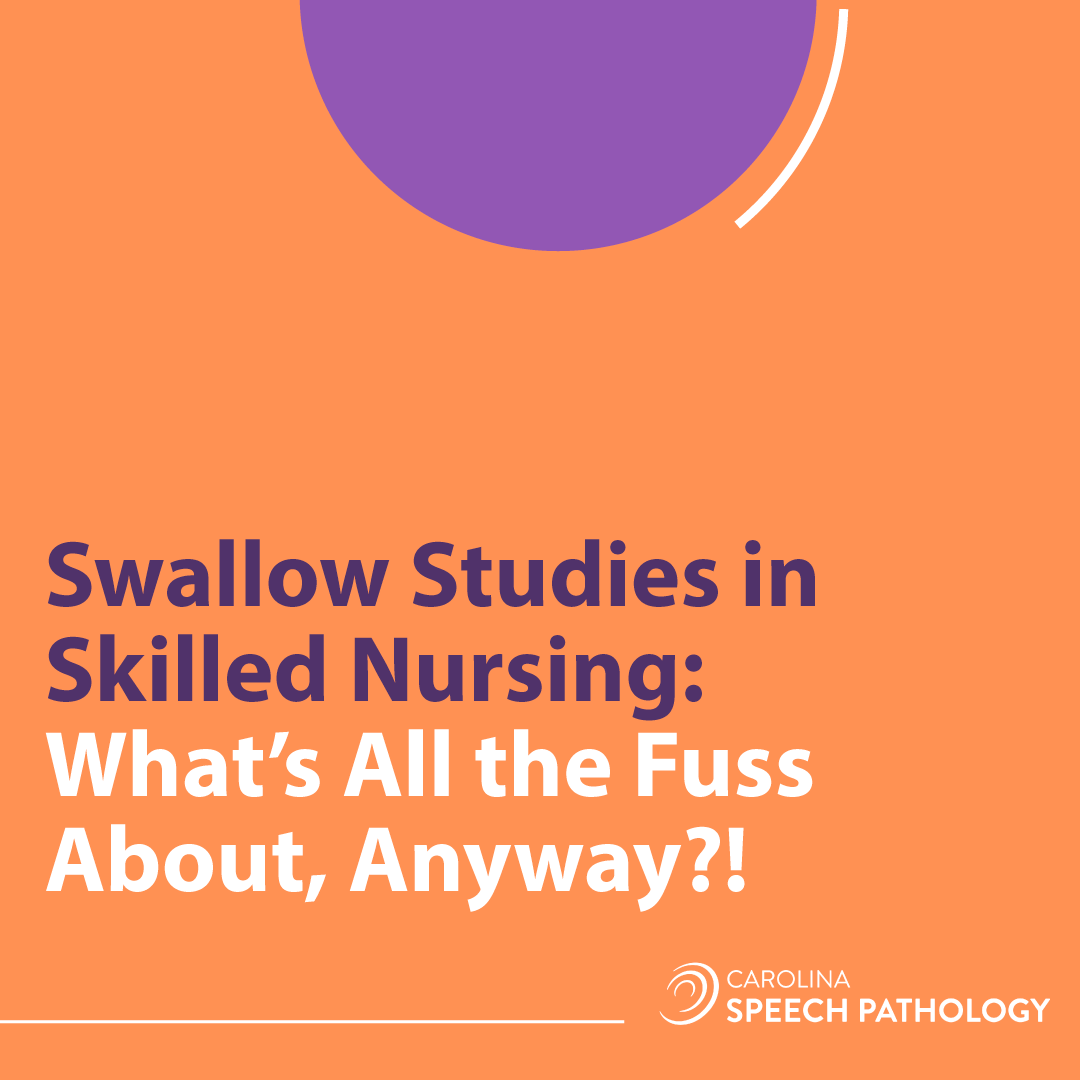How many of you are familiar with the following scenario?
You are an excited SLP, fresh out of grad school, ready to finally get paid for all of your hard work and apply all of the cool things you have learned to your first job. You were born ready for this. You did all of your research prior to your job interview and asked all of the right questions. You interviewed with the regional director of the rehab company and had an engaging conversation about the importance of dysphagia imaging. You were told that your skilled nursing job site would have access to mobile imaging.
You hit the ground running on day 1. Soon after screening and evaluating the residents, you identify two who need dysphagia imaging. You turn to your DoR to learn the process of how to refer for a swallow study… and you hit a roadblock: “Wait, you just started, shouldn’t you work with these residents at bedside first before you get a swallow study? That’s what the SLP before you did. They only requested a few studies a year, and that’s how we do things at this building.” Whoa. What’s up with that.?
You reach out to your CF supervisor who works at a building 30 miles away. “Try thickening their liquids and monitor to see how they do. You need to exhaust all options at bedside before you refer for a swallow study.” What in the world? This isn’t best practice, and you know it! What is going on?
You are tenacious, and you know these two residents *need* a swallow study. You request a few minutes with your administrator to discuss the situation, and you are told “listen, you are new at this, and you are learning, so listen to your supervisor. There is a lot you can do at bedside before you jump into a swallow study. I will usually only approve one or two studies a quarter because that is all this building needs. You’ll figure it out.”
And here you are, stuck in every SLP’s nightmare. Being forced to guess at bedside? Rationing of swallow study services? Making you question everything you have learned about dysphagia?? The list goes on.
But WHY is it like this?! Especially in a skilled nursing setting?!
The answer is that the root of the issue is likely multifactorial:
- Billing and reimbursement practices are unique in skilled nursing settings as compared to other medical settings
- There are disconnects between what non-SLPs think they know about the SLP role in assessing dysphagia, and what they really know
- SLPs may be praised and recognized for not referring for swallow studies, even when a study is clinically indicated
- For the most part, healthcare in America is a business, and decisions about care are fused with concern for clinical outcomes and the financial impact that those decisions have on bottom lines
- A lot of dysphagia practice patterns are passed down from one SLP to the next, making it difficult to break old habits with new evidence based approaches
- Many SLPs do not learn how they actually positively impact the financials when they have access to the tools they need
- Many SLPs are not equipped to have cost conversations. SLPs are clinical-focused and outcome-focused, but most do not learn how their clinical results impact the financials at their facility
SLPs do positively impact the financials. But SLPs need access to the correct tools in order to cut out unnecessary costs related to dysphagia care. SLPs also must understand how the cash flow works within a skilled nursing facility in order to be effective when advocating for services.
Carolina Speech Pathology hosts a FREE Live Webinar every quarter that takes a deep dive into how swallow study billing and reimbursement works in a Skilled Nursing setting. The Webinar also shows how SLPs contribute to cost savings within a Skilled Nursing setting, but only when we can access the services we need.
We hope that you will be able to join us for this upcoming webinar on November 1st from 10:00 am -11:30 am eastern: Much Ado about Swallow Studies: The Clinical and Financial Value of Dysphagia Imaging in Skilled Nursing. The course is registered with ASHA for .15 CEUs.
If you are not able to attend, no problem! We offer the course quarterly, at different times, in hopes that all who are interested will be able to attend!
Happy Advocating, friends!

